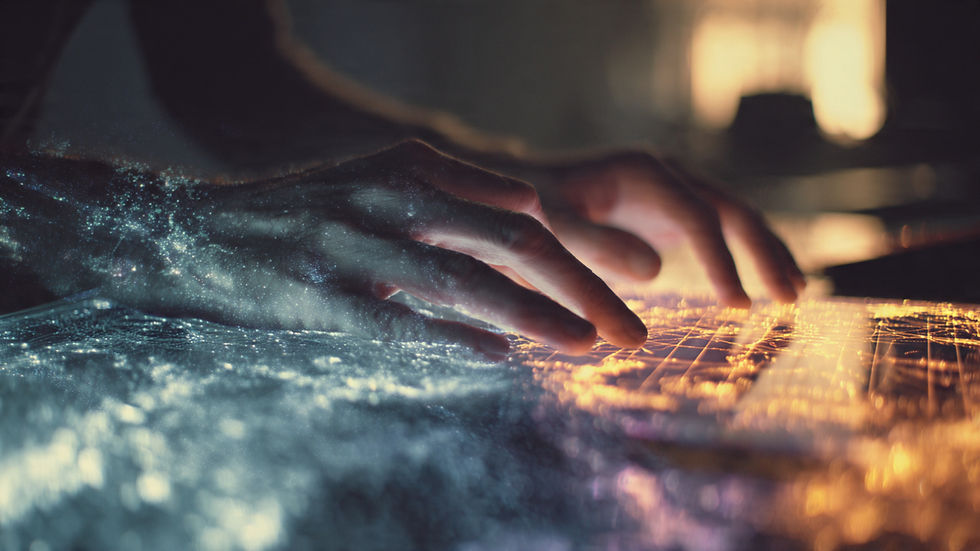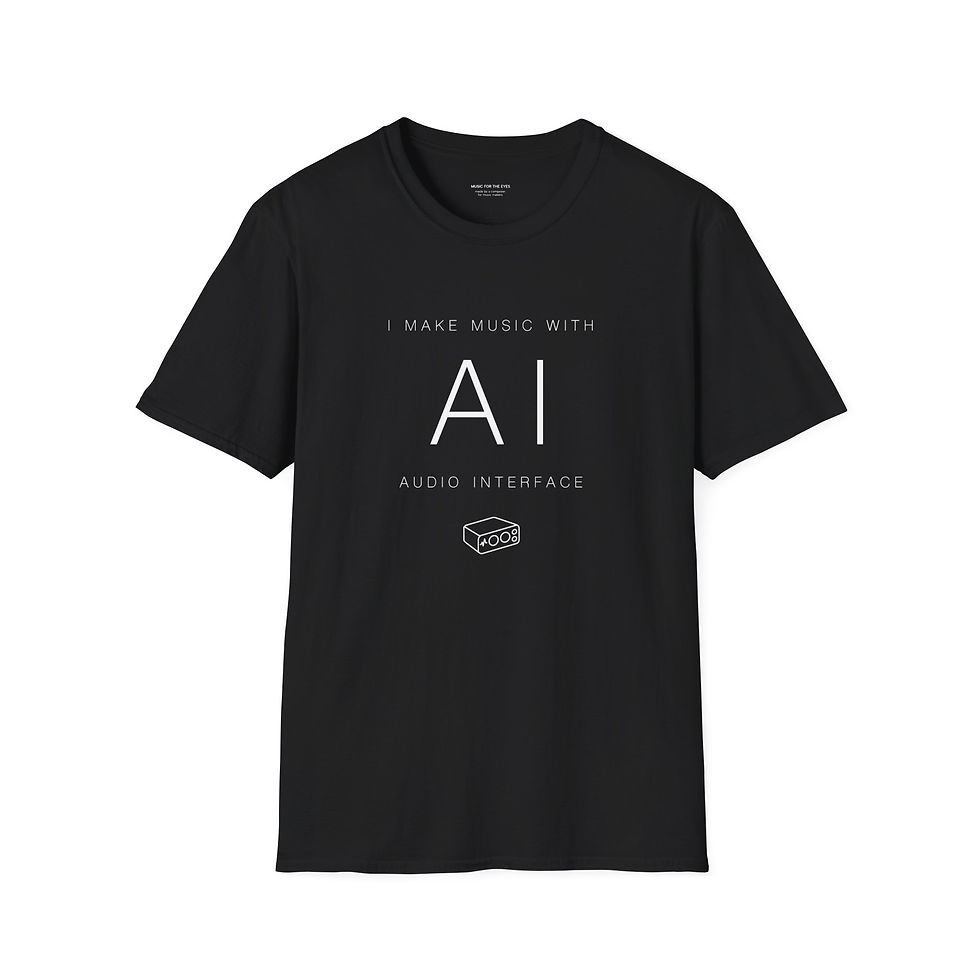The Impact of AI on the Career of Film Score Composers
- Filipe Leitão

- Jul 31, 2024
- 4 min read
In today’s rapidly evolving technological landscape, Artificial Intelligence (AI) is transforming numerous industries, and music is no exception. Tools like SUNO, AIVA, and UDIO are revolutionizing the way music is created. But the big question is: will AI replace film score composers?

Synchronization and the Human Role
One of the crucial elements in film scoring is synchronizing music with the image, particularly hit points. These moments, where the music must perfectly coincide with specific actions or emotions on screen, require a sensitivity that goes beyond algorithms. A classic example can be found in John Williams’ work for “Indiana Jones: Raiders of the Lost Ark” (1981). In the famous scene where Indiana captures an idol and escapes from a rolling boulder at the beginning of the film, the music follows each step, increasing the scene’s tension and adrenaline until he escapes the cave. This level of precision and emotion requires thoughtful decisions and intense discussions with the director, something AI still cannot replicate accurately.
Using AI as an Auxiliary Tool
Despite its limitations, AI can be a powerful auxiliary tool for composers. It can help generate ideas, create initial sketches, or even produce background music that can be refined later by the human composer. AI tools can speed up the composition process, allowing composers more time to focus on the emotional and artistic aspects of their scores.
Examples of AI Use in the Musical Process
✅ Idea Generation and Sketches: Tools like AIVA can be used to create initial sketches of film scores. Based on parameters defined by the composer, AI can generate a variety of options that can serve as a starting point for creation. For example, a composer might use AIVA to generate a base melody for an action scene, which they then adapt and develop to fit the film’s artistic vision.
✅ Arrangement Optimization: AI can analyze compositions and suggest improvements to arrangements. Tools like SUNO can identify patterns and propose variations that the composer might not have considered, optimizing the piece’s complexity and harmony.
✅ Mastering: AI software like Landr and iZotope Ozone can be used for the automatic mastering of film scores. Although human review is still necessary to ensure final quality, these programs can save time and resources.
✅ Trend Analysis: AI can analyze large volumes of data to identify musical trends and audience preferences. This can help composers adapt their creations to better resonate with their target audience. For example, a composer can use these analyses to incorporate musical elements that are popular among young adults, increasing the soundtrack’s appeal to this demographic.

Extra-Musical Processes
✅ Project Management: AI tools can help manage projects, from organizing files to coordinating schedules. Applications like Asana and Trello use AI to optimize workflows and ensure deadlines are met.
✅ Marketing and Distribution: AI can analyze audience data and suggest more effective marketing strategies for promoting music. Tools like Google Analytics, powered by AI, can provide valuable insights into where and how to market a composer’s work.
Legal and Ownership Issues
Another crucial point is the legal issue surrounding AI-generated music. Who owns the music created by AI? The answer is still uncertain and constantly debated. According to Loeb & Loeb LLP, a law firm in the United States, current copyright law does not protect works created entirely by AI. This means that, for a composition to be protected, there must be significant human intervention in its creation. Additionally, many studios and production companies are prohibiting the use of AI-generated music due to these legal uncertainties and the potential infringement of third-party copyrights.
Will AI Replace Composers?
While AI is advancing rapidly, predicting that it will completely replace composers is unlikely at this time. Musical creation is deeply rooted in human experience and emotional expression, something that AI, with its pattern and data-based nature, still cannot authentically replicate. Music, especially in contexts like film scoring, is not just a combination of notes and rhythms; it is an art form that communicates emotions, stories, and the composer’s vision. This process involves intuition, empathy, and a deep understanding of emotional nuances unique to the human experience.
Furthermore, collaboration between composers and directors is fundamental to developing an effective film score. This creative interaction involves detailed discussions about the film’s tone, atmosphere, and narrative, and these decisions are based on subjective experiences and artistic sensitivities that AI cannot replicate.

Comparison with Other Technologies
Like other technologies developed to assist rather than replace humans, AI should be seen as a tool that expands composers’ capabilities. Similarly to the emergence of virtual instruments and music production software, which expanded creative possibilities without eliminating the role of the musician, AI can offer new ways to explore musical creativity.
This is the reality of AI at the moment, but everything can change and evolve at any time, in the coming years or even months. Technological advancement is rapid and continuous, and what seems like an AI limitation today may soon be overcome, further changing the landscape of musical composition and other music-related professions.
We must be open to seeing where technology is headed, learning these new tools, and incorporating them into our workflow. For example, the invention of the personal computer revolutionized the way we work; although it eliminated jobs related to typing and manual information processing, it led to the emergence of new professions like software developers and data analysts.
As we have seen, AI can be a valuable tool for composers, offering new means of inspiration and efficiency. Accepting and learning these new technologies can open doors to innovative opportunities and the emergence of new professions.















Comments